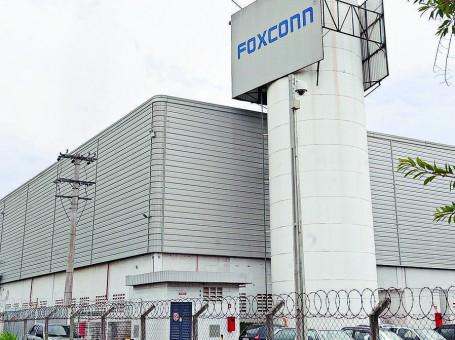Taiwanese contract manufacturer Foxconn, one of Apple's closest partners, is under fire in Brazil as officials in the South American nation are displeased with the company's slow rate of progress on what was initially sold as a major investment to modernize the Brazilian manufacturing industry.
Foxconn's Jundiai, Brazil manufacturing plant
While some believed that Foxconn's 2011 expansion to Brazil would bring as many as 100,000 jobs and $12 billion in capital investment, the company currently has fewer than 10,000 employees in its 5 Brazilian factories, according to Reuters. One of those facilities is reportedly dedicated to production of Apple's iPhone 5s.
Despite a public commitment to invest at least $325 million in a new industrial park in Itu, outside of São Paulo, the site is not yet operational, though Foxconn did say it should come online by the end of 2015. The lack of headway has been cause for consternation among city officials.
"People are really frustrated," Itu city councilor Givanildo Soares da Silva said. "We were expecting all these jobs by now and it's still just empty promises."
Of the jobs that Foxconn has brought, many pay little more than minimum wage. Acceptance testers at the Brazilian iPhone plant, for example, bring home just $80 per week and lack access to the same training and advancement opportunities that their counterparts in Foxconn's Chinese facilities receive.
Workers have held at least three strikes at the iPhone factory, and a union representative said they were planning another. Such labor flare-ups have angered Foxconn founder Terry Guo, who infamously slammed Brazilian labor in 2010.
"Brazilian workers' wages are very high. But Brazilians, as soon as they hear 'soccer,' they stop working. And there's all the dancing. It's crazy," he said at the time.
Manufacturing Apple devices in Brazil also has not had the desired effect of lowering local prices, which are inflated by as much as 30 percent on imported goods thanks to various taxes and tariffs. iPhones and iPads routinely sell for twice as much in Brazil as they do in the U.S., which does not surprise local residents.
"If we're buying it at that price, then why would they bring it down?" one shopper told Reuters. "I don't even know what the next iPad does, but I know I need it."
 AppleInsider Staff
AppleInsider Staff







-m.jpg)






 Charles Martin
Charles Martin
 Christine McKee
Christine McKee
 Wesley Hilliard
Wesley Hilliard
 Malcolm Owen
Malcolm Owen
 Andrew Orr
Andrew Orr
 William Gallagher
William Gallagher
 Sponsored Content
Sponsored Content








15 Comments
Crappy government, largely lazy populace, maybe not the best place to put a factory.
See, Lots of high taxes, trying to protect the local jobs and what do you get? Products like the iPhone that cost twice as much as anywhere else in the world!!! Again, Corporations don't pay taxes, they pass them on to YOU as higher prices. They pay their taxes of course, but the money is coming from YOU the consumer. They more they're taxed, the more YOU pay. It's really that simple. This country is really bad in high taxes. Very High Import Taxes trying to keep the jobs there, which is why Foxconn tried to open up shop there. A High Minimum wage which with the prices on everything being sky high is still not much. it's all over inflated and they did it to themselves. Of course they cry about it and blame others for what they themselves did.
I've read a lot about Brazil over the years. This is a Katin American country, even though it's South American. Their culture is very different than that in China and other Asian countries. It's different than here too. There's a similar problem in Europe, but for different reasons. Probably Foxconn is dragging their feet. But the situation in Brazil isn't favorable to large factory manufacturing when large numbers of people are needed.
Complex relationship where Brazil Gov't and its labor unions want jobs on their terms but Foxconn has a different agenda of highly responsive production and associated labor force. It's not these can't work together, but it looks like they talk past each other.
Expectations were probably optimistic, but it does sound like Foxconn is dragging its feet, and the cultural differences need to be addressed.